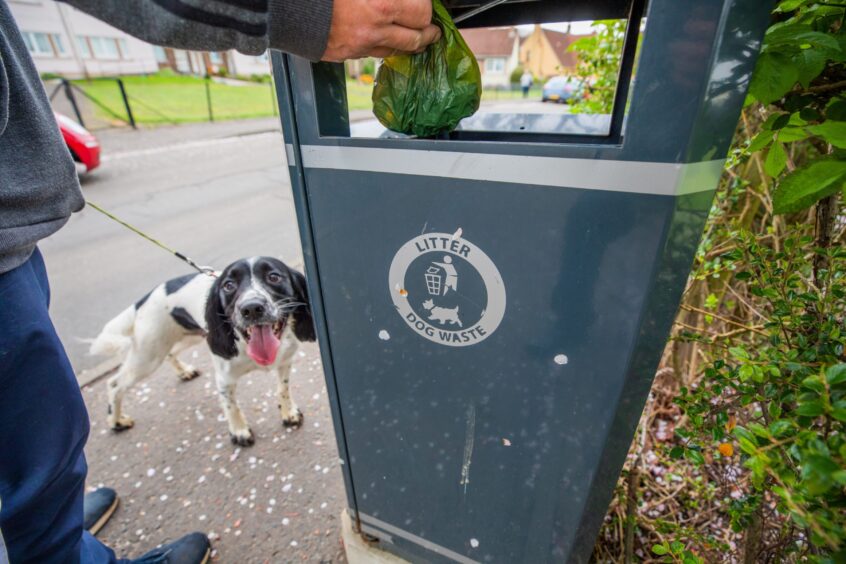Dog owners in Perthshire and Angus are being urged to dish the dirt and hand over their pet’s poo.
The Thrums Vets group is conducting research into the prevalence of worms in the area.
And it’s asking local animal-lovers to help by sharing dog poo samples.
Dog owners can collect a container from any of Thrums’ four practices in Kirriemuir, Blairgowrie, Forfar and Scone.
The vets are hoping to collect hundreds of pea-sized poo donations by December 31.
Owners will also be asked a few questions about their pet’s worming history.
And the study is open to dogs that are regularly wormed, as well as those that are not.
Thrums’ research will help vets give right advice on worms
Samples will be laboratory-tested to find out if the participating pet has intestinal worms and, if so, what kind they are.
It’s free of charge to take part.
And every owner will receive a unique report on their dog’s worming status.
It’s hoped the research will reveal how widespread worms are in the local area.
But it will also help to determine whether vets are giving the right advice on the frequency of worming treatments.
Thrums Vets director Gavin Durston said worms can be a nasty parasite for dogs, often without anyone knowing they have them.
“In most cases they are ingested,” he said.
“Although certain types, such as hookworms, can penetrate the dog’s skin, and they can easily spread from dogs to humans.
Research could lead to fewer treatments
“Vets generally advise that adult dogs should be wormed every one to three months,” Gavin said.
“But there’s a risk that the treatments could become less effective if they’re used too regularly because worms could build up a resistance to them.”
Depending on the results of the research, he said it might be possible for dog owners to reduce the amount of worming treatments they give their pets.
They might even be able to replace them with regular testing, saving money and unnecessary treatments.
“Equally, if we discover that certain types of worms are rampant locally, we could also look at tailoring treatments and introducing a risk-based approach to worming,” Gavin added.














Conversation